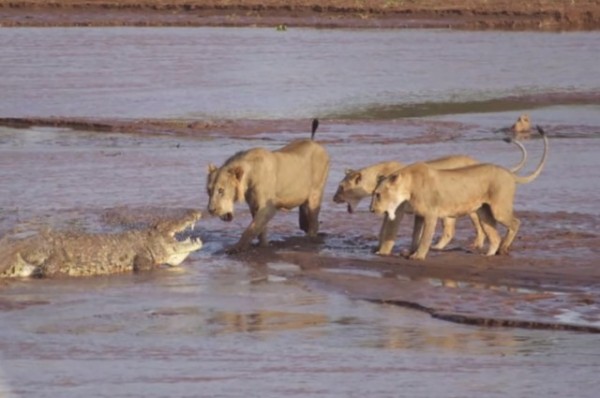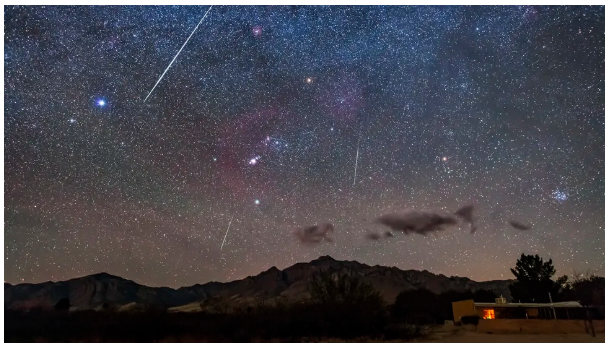
Kai Banks posted a YouTube video of his family’s trip to the Samburu National Reserve in Kenya. Most people hope to view wild animals in their natural settings while on these types of tours, and the Banks family definitely hit the jackpot when they got to see a group of lionesses fighting a crocodile over an elephant carcass.
The footage is pretty amazing, check it out:
In the YouTube description, Kai mentioned that they had not planned on filming while on the tour, so they did not have memory cards equipped to film both fights. Instead, he was forced to take still images.
The outcome of the fight may not have been much of a surprise. Female lions hunt in groups, because teamwork allows them to take down bigger animals, providing more food for their pride. The croc gave it a great attempt, but the fight was over before it began.
For that reason, the caption “Fight is over – lions win” wasn’t the most surprising thing on the last image; it was the elephant. At first glance, it looks to be the work of poachers who had cut the tusks out. When lions begin eating animals, they start at the internal organs where there are the most nutrients. They wouldn’t have caused such damage to the face. While the crocodile could have been fighting the elephant prior to the arrival of the lions, they typically target the vulnerable trunk.
Fortunately, Kai reported in the video’s comment section that the elephant had died of natural causes. The rangers at Samburu National Reserve had been the ones to remove the tusks after the elephant’s death. While it might seem mean to hack apart an elephant after its demise, if the rangers didn’t do it, the poachers would have. Poaching in Samburu National Reserve has been skyrocketing since 2008, and the rangers need to do whatever they can to keep wildlife criminals from obtaining the ivory however they can. Much of the ivory is sent to research facilities, though some areas will burn the ivory to keep it out of the black market.
Ivory from elephant tusks for use in trinkets has nearly tripled over the last four years, and some ivory dealers in China will pay up to $2100 per pound. As many wildlife reserves are in poverty-stricken areas, some become desperate for the money and have made a lucrative career in systematically driving elephants toward extinction.








 Photographer Finds Locations Of 1960s Postcards To See How They Look Today, And The Difference Is Unbelievable
Photographer Finds Locations Of 1960s Postcards To See How They Look Today, And The Difference Is Unbelievable  Hij zet 3 IKEA kastjes tegen elkaar aan en maakt dit voor zijn vrouw…Wat een gaaf resultaat!!
Hij zet 3 IKEA kastjes tegen elkaar aan en maakt dit voor zijn vrouw…Wat een gaaf resultaat!!  Scientists Discover 512-Year-Old Shark, Which Would Be The Oldest Living Vertebrate On The Planet
Scientists Discover 512-Year-Old Shark, Which Would Be The Oldest Living Vertebrate On The Planet  Hus til salg er kun 22 kvadratmeter – men vent til du ser det indvendigt
Hus til salg er kun 22 kvadratmeter – men vent til du ser det indvendigt  Superknepet – så blir snuskiga ugnsformen som ny igen!
Superknepet – så blir snuskiga ugnsformen som ny igen!  Meteorite That Recently Fell in Somalia Turns Out to Contain Two Minerals Never Before Seen on Earth
Meteorite That Recently Fell in Somalia Turns Out to Contain Two Minerals Never Before Seen on Earth  Nearly Frozen Waves Captured On Camera By Nantucket Photographer
Nearly Frozen Waves Captured On Camera By Nantucket Photographer  It’s Official: Astronomers Have Discovered another Earth
It’s Official: Astronomers Have Discovered another Earth 